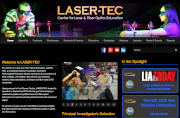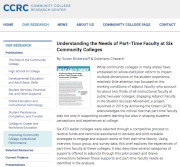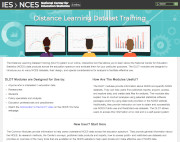
Laser and Fiber Optics Regional Center (LASER-TEC)
www.laser-tec.org
The ATE Regional Center, LASER-TEC, will continue developing the lasers and fiber optics (LFO) workforce for the southeastern U.S., and will expand the current network of 21 partner colleges. The industrial corporate network will increase to include companies from different sectors of the economy.
The goals are to:
- Increase and strengthen LFO academic programs to meet industry demand
- Create and offer LFO professional development programs for secondary school teachers, college faculty, and incumbent workers
- Develop LFO curriculum materials for secondary schools, colleges, and industry
- Develop, promote, and deliver outreach and awareness programs to secondary STEM teachers, advisors, counselors, and administrators
- Develop strategies and materials to recruit and retain underrepresented groups to promote diversity in LFO programs
- Identify and disseminate LFO technicians' skillsets and employment needs in the southeastern U.S.
LASER-TEC is working with AIM Photonics, Power America, Advanced Functional Fabrics of America, and other Manufacturing USA Institutes to provide the workforce education and training as new technologies are developed.







